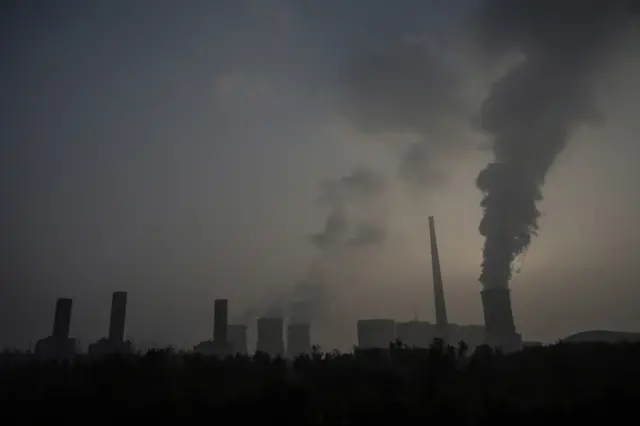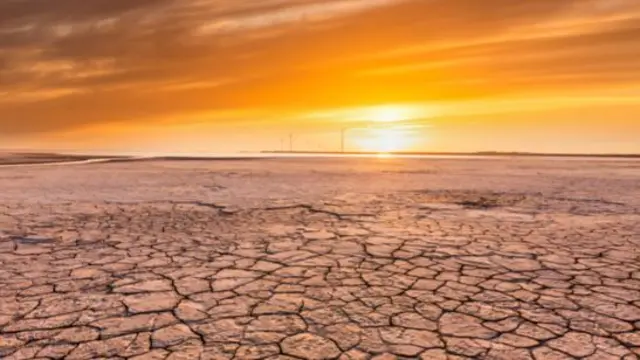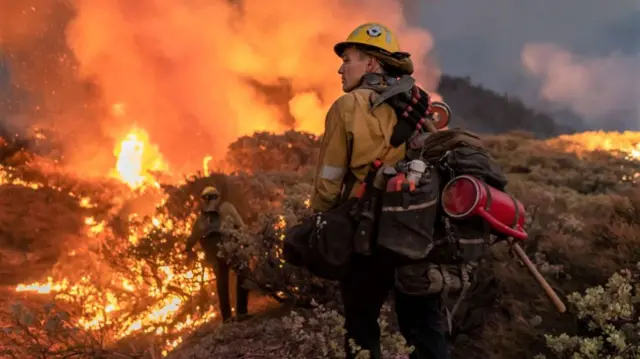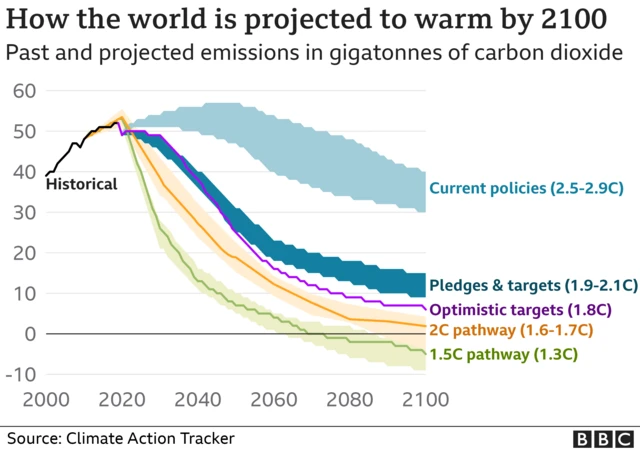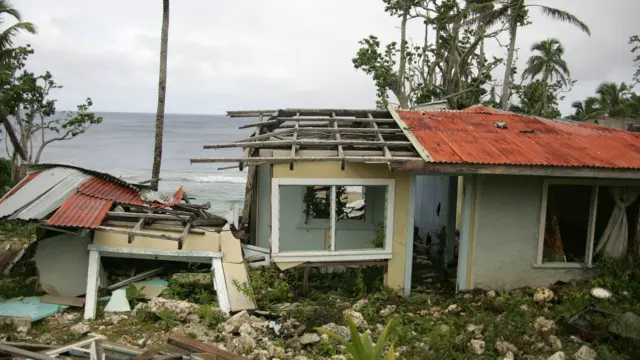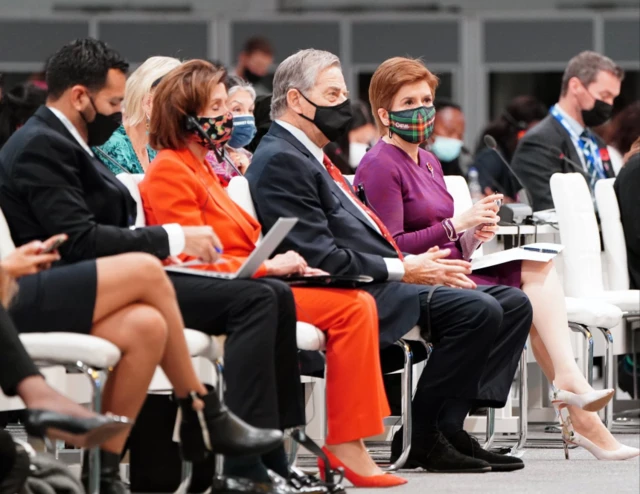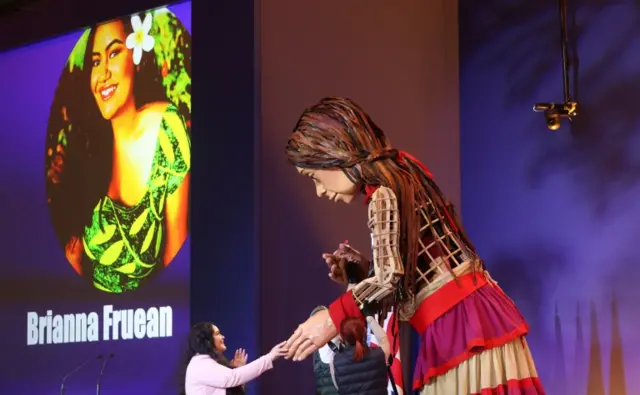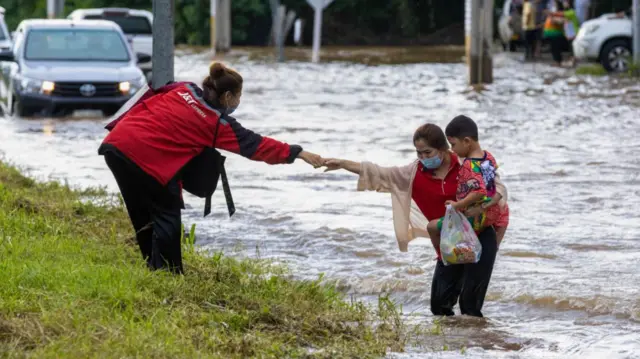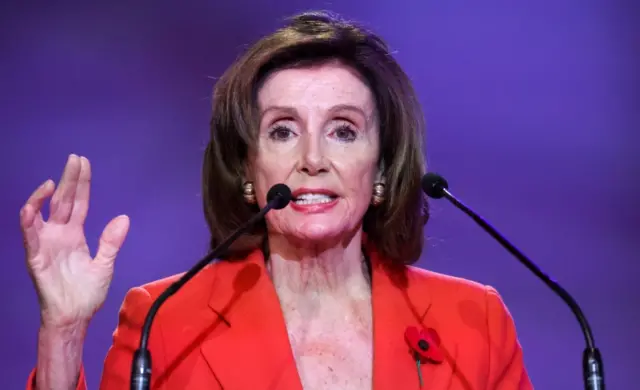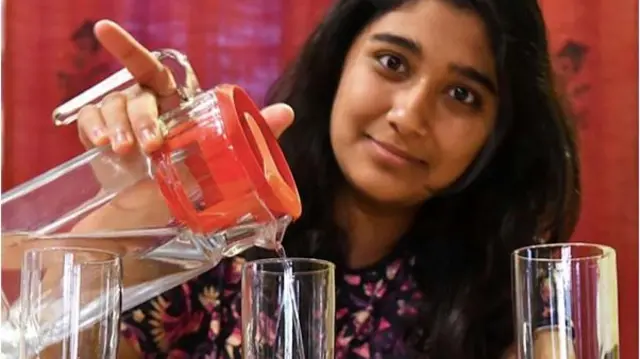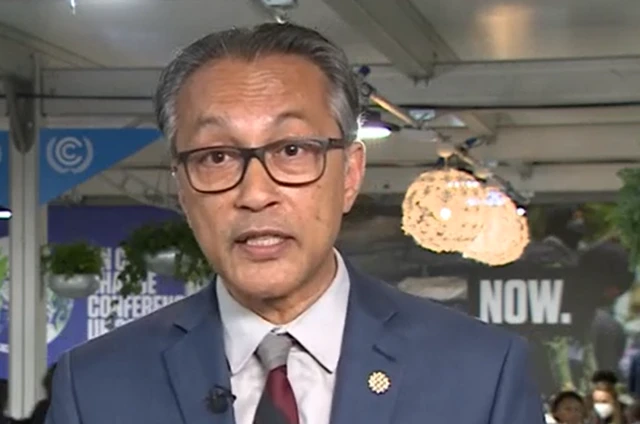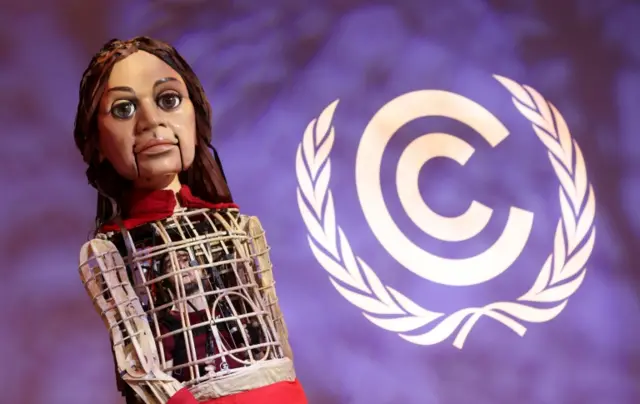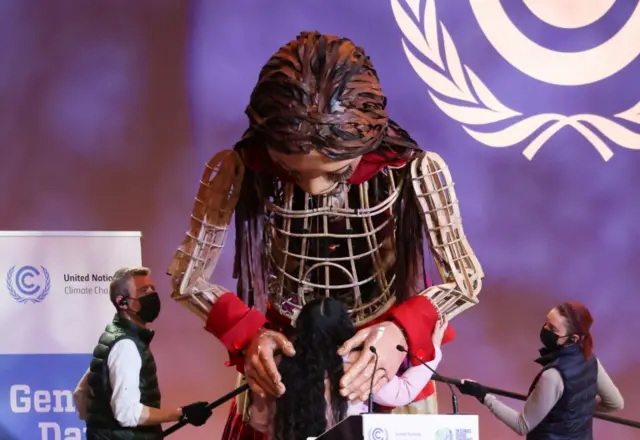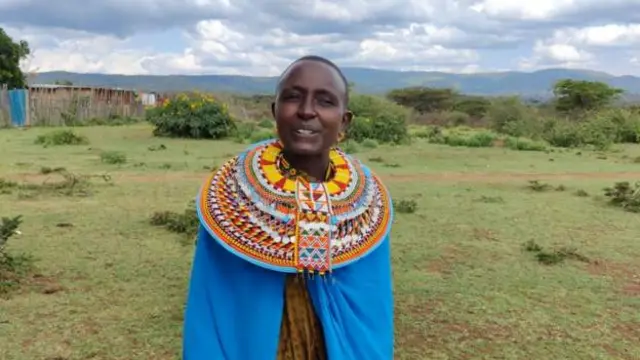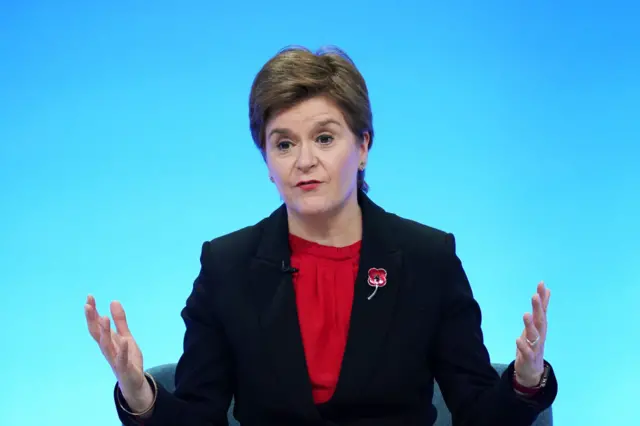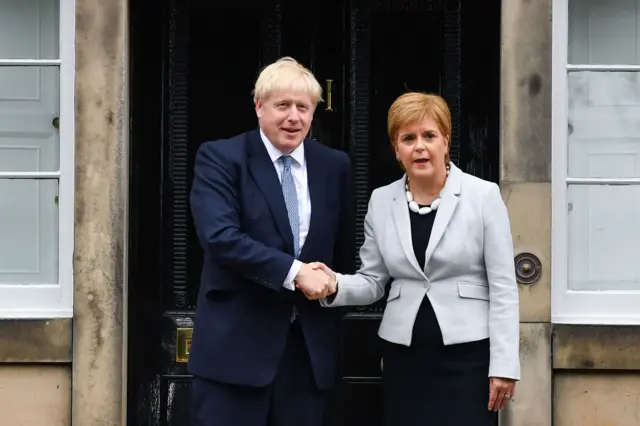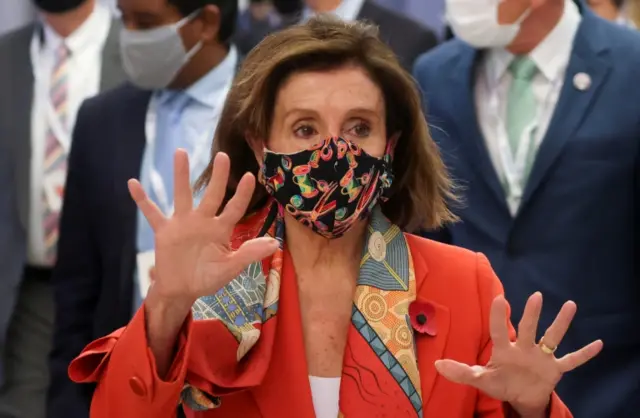Who is Climate Action Tracker?published at 14:30 GMT 9 November 2021
New analysis has just been published showing the world is still on course for disastrous warming.
What makes this news so significant is the reputation of the group behind the report - Climate Action Tracker, external.
The independent organisation has been making these predictions since 2009 and releases a new report every year.
By looking at government policies and pledges, it tracks if the world is getting closer to the agreed aim of limiting global warming to 1.5C degrees.
It's made up of scientists and policy experts from two scientific institutes - Climate Analytics and New Climate Institute.
One of the reasons the group is renowned is because it's very open about its methods - meaning we can all see how the numbers are added up.
